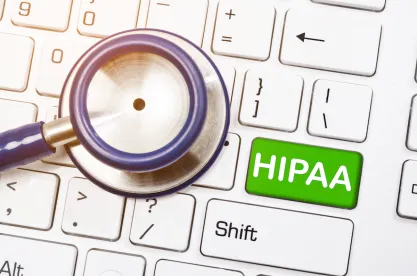It can be cathartic responding to a negative online review. It can also backfire, as can failing to cooperate with an OCR investigation as required under HIPAA.
The Office for Civil Rights (OCR) recently announced four enforcement actions, one against a small dental practice that imposed a $50,000 civil monetary penalty under HIPAA. The OCR alleged the dentist impermissibly disclosed a patient’s protected health information (PHI) when the dentist responded to a patient’s negative online review. According to the OCR, the dentist’s response to the patient read:
It’s so fascinating to see [Complainant’s full name] make unsubstantiated accusations when he only came to my practice on two occasions since October 2013. He never came for his scheduled appointments as his treatment plans submitted to his insurance company were approved. He last came to my office on March 2014 as an emergency patient due to excruciating pain he was experiencing from the lower left quadrant. He was given a second referral for a root canal treatment to be performed by my endodontist colleague. Is that a bad experience? Only from someone hallucinating. When people want to express their ignorance, you don’t have to do anything, just let them talk. He never came back for his scheduled appointment Does he deserve any rating as a patient? Not even one star. I never performed any procedure on this disgruntled patient other than oral examinations. From the foregoing, it’s obvious that [Complainant’s full name] level of intelligence is in question and he should continue with his manual work and not expose himself to ridicule. Making derogatory statements will not enhance your reputation in this era [Complainant’s full name]. Get a life.
This is not the first time a dentist was fined by the OCR in connection with responding to a patient’s online review. In 2019, it was a Yelp review that resulted in a $10,000 penalty. So, why is the OCR imposing five times that penalty in this matter?
In short, the OCR explained the covered dental provider “did not respond to OCR’s data request, did not respond or object to an administrative subpoena, and waived its rights to a hearing by not contesting the findings in OCR’s Notice of Proposed Determination.” According to the OCR, among other things, the dentist has not removed the response to the patient’s online review.
Online review platforms, such as provided by Google and Yelp, can be important for small healthcare providers and other small businesses to promote their practices, businesses, and facilitate their interaction with persons they serve. However, caution should be exercised. Disclosing a patient’s identity and the patient’s health status in a response to an adverse online review without the patient’s authorization is likely a violation of the HIPAA Privacy Rule. If not careful, and in the absence of a clear policy, casual and informal communications between practice staff and patients could expose the practice to significant risk.
But based on how this case turned out, a refusal to cooperate with the resulting OCR investigation can trigger a more significant HIPAA penalty.
So, what should small dental, physician and other healthcare practices be doing to address these risks:
-
Get complaint with HIPAA and Maintain Policies on Disclosures in Social Media! In this case, for example, the OCR noted that HIPAA covered healthcare providers should have policies and procedures related to the disclosures of PHI and more specifically with regard to disclosures of PHI on social media.
-
Train staff (including healthcare providers and owners) concerning these policies. Here, the OCR asked for copies of these policies. That is, the OCR did not only want to see a sign-in sheet showing staff attended the training, the agency wanted to see the policies that the training was based on.
-
Maintain a HIPAA Notice of Privacy Practice. At a minimum, this should be posted in the office and on the practice’s website, as applicable.
-
Monitor social media activity by staff. Understand the social media channels that the practice engages in and consider periodically monitoring public social media activity by staff.
-
Cooperate with the OCR. Covered entities should absolutely make their case to the OCR in defense of a compliance review or investigation. At the same time, being responsive to the agency’s requests can go a long way toward resolving the matter quickly and with minimal impact. Having experienced legal counsel versed in the HIPAA Privacy and Security Rules to guide the practice can be tremendously helpful.




 />i
/>i

